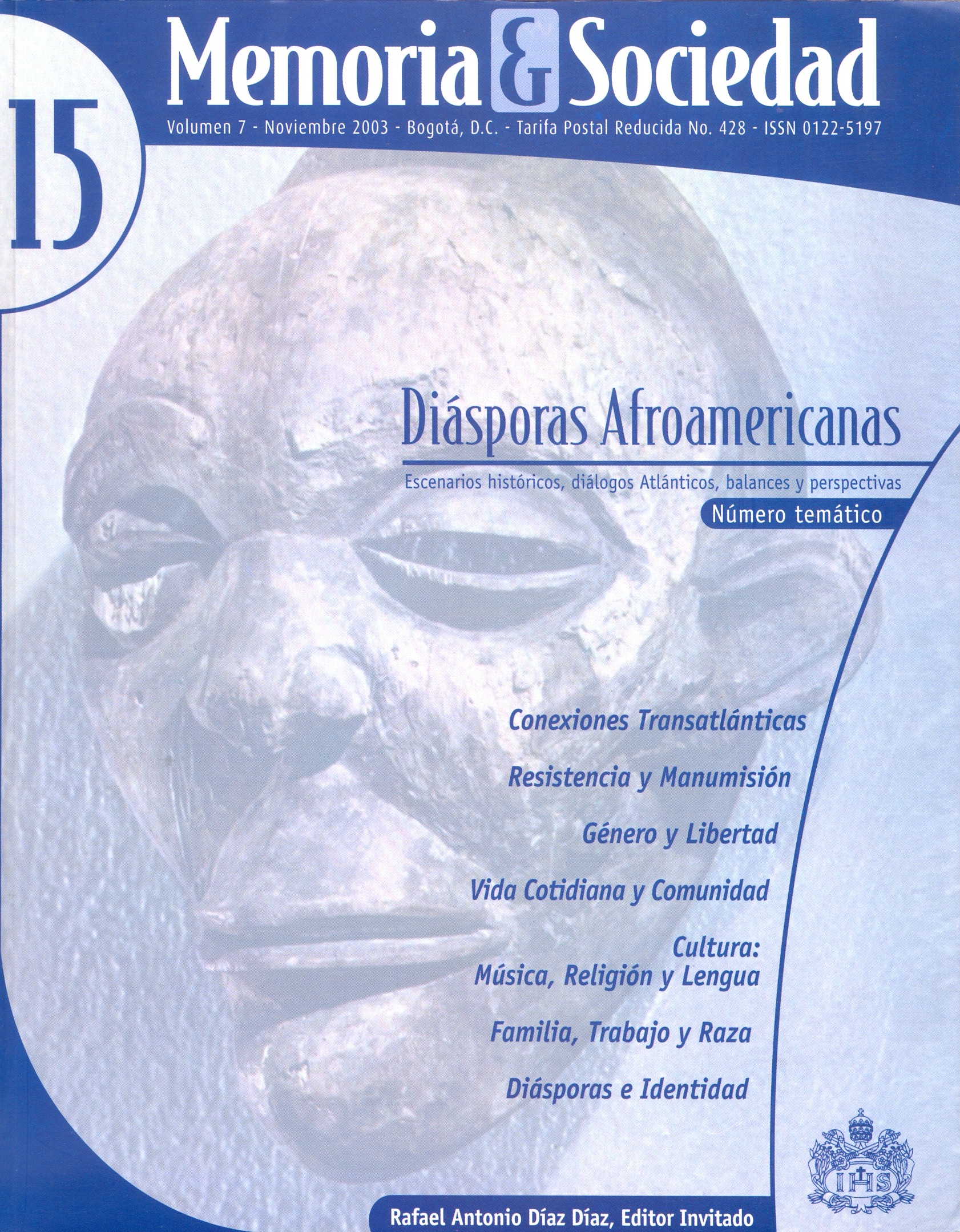Resumo
En el siglo XIX un grupo compuesto en su mayoría por afro-jamaiquinos se estableció en la costa Caribe de Costa Rica, un país de habla hispana. Dicha comunidad debía trabajar para Minor C. Keith un ingeniero estadounidense que había sido comisionado por el gobierno costarricense para construir un ferrocarril que uniese un puerto del este con la capital del Valle Central, San José. Para financiar su empresa Keith fundó la United Fruit Company y los trabajadores jamaiquinos permanecieron en la provincia de Limón para plantar bananos. El lenguaje creole de los empleados, basado en el inglés, sobrevivió, a pesar de los esfuerzos del gobierno por erradicarlo, principalmente porque actúa, entre otros elementos, como una marca de identidad para quienes lo hablan. Pero ¿sobrevivirá a la globalización? Y si es así, ¿por cuánto tiempo?A revista Memoria y Sociedad encontra-se registada sob a licencia Creative Commons Versão 4.0 Internacional. Portanto, esta obra pode se reproduzir, distribuir e comunicar publicamente em formato digital, sempre que dado o crédito apropriado para os autores e a Pontificia Universidad Javeriana. Permite-se citar, adaptar, remixar, transformar, autoarquivar, republicar e criar a partir do material, para qualquer fim, mesmo que comercial, sempre que indicado apropriadamente o nome do criador, provido um link para a obra original e indicado se mudanças foram feitas. A Pontificia Universidad Javeriana não retém os direitos sobre as obras publicadas e os conteúdos são responsabilidade exclusiva dos autores, os quais conservam seus direitos morais, intelectuais, de privacidade e publicidade.
O aval sobre a intervenção da obra (revisão, correção, edição, tradução, formatação) e a subsequente difusão disponibiliza-se através de licença de uso e não através de transmissão de direitos, o que representa que a revista e a Pontificia Universidad Javeriana são isentas de qualquer responsabilidade que puder se derivar de uma prática ética pobre por parte dos autores. Em consequência da proteção fornecida pela licença de uso, a revista não fica na obrigação de publicar retratações ou alterar informações já publicadas, a não ser que a errata seja decorrente do processo de gestão editorial. A publicação de conteúdos nesta revista não representa royalties para os contribuintes.

